TES


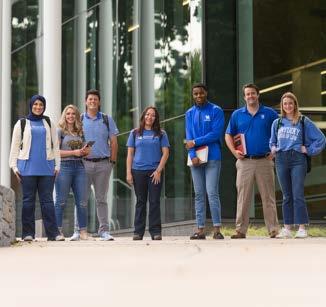






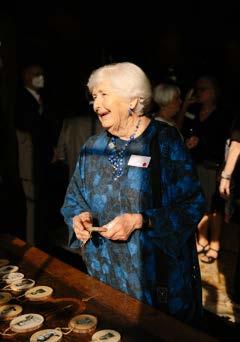
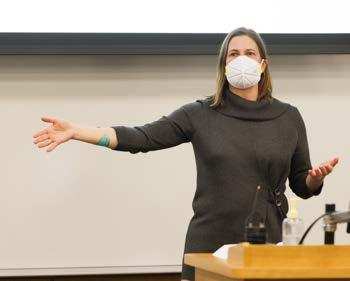 university of kentucky j. david rosenberg college of law
university of kentucky j. david rosenberg college of law
SOUTHLAND PRINTING CO.
ABOUT THIS MAGAZINE
Law Notes is published annually for the alumni, students, faculty, staff and friends of the UK Rosenberg College of Law.
All correspondence should be directed to:
Law Notes
UK J. David Rosenberg College of Law 620 South Limestone Lexington, KY 40506-0048
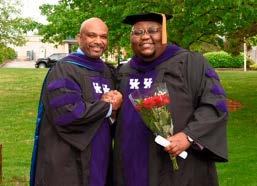

The University of Kentucky is committed to a policy of providing educational opportunities to all qualified students regardless of economic or social status and will not discriminate on the basis of race, color, ethnic origin, national origin, creed, religion, political belief, sex, sexual orientation, marital status, age, veteran status, or physical or mental disability.
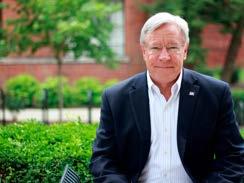
The University of Kentucky J. David Rosenberg College of Law is a member of the Association of American Law Schools and is approved by the American Bar Association. © The University of Kentucky All Rights Reserved
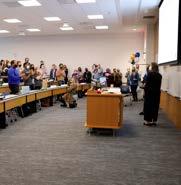
When you have been in legal education as long as I have, you often wonder whether all the students you have taught, and legal scholarship you have written, and graduates whose careers you have followed have made the kind of impact on the law and society that you hoped when you started down this road. As your Dean, I have learned that the answer to that question is a resounding “YES!” The students, faculty, and graduates of the University of Kentucky J. David Rosenberg College of Law are making a difference in more ways than I could have imagined.
This edition of Law Notes
celebrates impact— student impact, faculty impact, and your impact on the legal profession, the lives of others, and on one another. Read these stories and updates on what’s happening at the law school with wonder and gratitude. Our community is making a difference.
First, our students. The current generation of students, Gen Z apparently (though I am not a fan of labels), comes to us with a fierce determination to make change and to do so on their terms. As you read about the graduates of the Class of ’22, who started by opening the new Law Building and then had to abandon it during the pandemic, you will find out about how this resilient class made a difference in the most difficult of times. Yesel Rodriguez, selected to receive the Faculty Cup during the commencement ceremony, started the Parents Attending Law School student organization while raising his family of young ones during law school. Yesel’s faculty nominator said of him, “He has been a friend to all and represents all the best things about UK.” Sterling Crayton makes a point to mentor and serve his community and received the Rebecca Westerfield Award for Excellence in Leadership. Corey Samples, president of the Student Bar Association, encourages others by her example to “make [law school] exactly what you want, and you can make change if you feel like things need to be changed.” Our students are changemakers.
Second, our faculty. I am humbled by the star power on this faculty, in the classroom, in their legal scholarship, and in their commitment to
our community. Two UK Rosenberg Law faculty members were nominated for, and received, the University of Kentucky Alumni Association’s Great Teacher Award. Cortney Lollar and Zachary Bray, featured in this edition, were nominated by Michaela Taylor, then a secondyear law student. Professors Lollar and Bray, like all our faculty, are committed to our students. They care deeply about their fields, criminal law and natural resources law, and they want to share that passion with their students. As Professor Lollar said, “The reason I do what I do is because of my students and to have a student take the time to (nominate me for this award) and even to feel that way—to consider me in that light, I am deeply touched and deeply moved by the honor.” Our faculty’s impact is both immediate and long-lasting, and they are humble at the same time.
Our faculty’s scholarship continues to impact legal discourse. Professor Melynda Price has been appointed as the first J. David Rosenberg Professor of Law. The Rosenberg Endowment supports “intellectual excellence and promise.” Professor Price has displayed that excellence throughout her career as an internationally known legal scholar in the area of victim’s rights and capital punishment. Professor Josh Douglas, a national expert in election law, was recently elected to the American Law Institute, the legal academy’s most prestigious achievement.
Last but certainly not least, Professor Allison Connelly, Class of 1983, the inaugural director of the Legal Clinic, retired in 2021. To be in the room where the celebration of her career happened was a humbling experience. It was standing room only—graduates came from across the country to honor her and to shower her with their gratitude for her impact on their lives. Professor Connelly is the quintessential “teacher who made a difference” by being a great educator but also by being a guide through life to her students.
You, our alumni, are among the Commonwealth’s and nation’s best. The highlight stories in this edition are just a few examples of your impact. Jennifer Yue Barber, Class of 2008, a first- generation graduate and
now leader of the largest law office in Kentucky, talks about how important it is to impact future generations of lawyers by unlocking opportunities for students to “understand the roadmap” through life as a lawyer. Chelsea Granville Reed, Class of 2015, never envisioned herself as a lawyer until she realized that lawyers impact the lives of citizens in our community every day. Colin Roberts (Class of 2008) is giving back to current students because another UK law school alum once supported him and changed the trajectory of his career. These and other stories of the accomplishments of our alumni are inspiring, and they show just a few of a million ways you and other graduates are making a mark. I am grateful for the impact all of you make on our college and in our communities.
Mary J. Davis Dean and Ashland-Spears Distinguished Research Professor of Law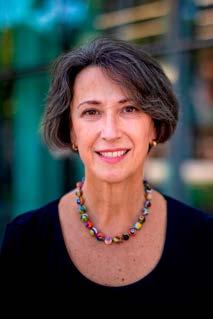
The University of Kentucky J. David Rosenberg College of Law held its commencement ceremony, celebrating the Class of 2022, on Friday, May 6 at the Singletary Center for the Arts.

“What a journey this class has been on,” UK Rosenberg Law Dean Mary J. Davis said. “Throughout the challenges of the past three years, you — graduates — have persevered, driven by the goal that we celebrate today. Today is a long-awaited day of joy for all of us, including the graduates, of course. We all share your sense of accomplishment, your sense of relief, your sense of excitement, and optimism about the future.”
The Class of 2022 forged ahead through myriad changes and challenges related to the COVID-19 pandemic. The students excelled in the classroom and formed a supportive community in extraordinary times, Davis said.

Over the past three years, student organizations, led by members of the graduating class, hosted speakers and legal experts from across Kentucky and the nation. Davis praised the Kentucky Law Journal and Kentucky Journal of Equine, Agriculture, and Natural Resources Law for organizing thoughtful and successful symposia, and the dean noted the two symposia related to the death of Breonna Taylor.
Students in the Class of 2022 have served the law school, university and state as well as many communities across the country. Some of them participated in the newly created, student-led board dedicated to advising college leadership about initiatives focused on diversity, equity and inclusion.
Students promoted a healthier law school through wellness initiatives and encouraged all students to prioritize their wellbeing alongside academics, Davis said. Law students served as leaders in the UK Student Government Association. They taught high school students lessons about law and government through the StreetLaw program. UK Rosenberg Law students provided pro bono legal services across the state, and they organized drives to collect supplies and funds for communities affected by floods in Eastern Kentucky and tornadoes in Western Kentucky.
“Through these and countless other activities, the Class of 2022 showed a determination and compassion that will continue to serve them as they begin their legal careers,” Davis said.
It is tradition for the highest-ranked student in the graduating class to present greetings on behalf of students at the commencement ceremony. Joshua G. Wolford of Lexington, Kentucky, spoke for the Class of 2022. Following graduation,
Wolford plans to serve one year as a clerk for The Honorable Karen K. Caldwell, U.S. District Judge for the Eastern District of Kentucky, and then one year as a clerk for The Honorable Danny J. Boggs, Senior U.S. Circuit Judge for the Sixth Circuit Court of Appeals.
Wolford offered his classmates the following advice: “You do not have to change the world unless you want to. I have no doubt that all of you could effect meaningful, broad-scale change socially, legally and politically if you made it your goal, but you don’t have to in order to be a good lawyer. You can be proud in competently and diligently representing your clients and in playing your role in the system with integrity and empathy.”
“Having said that, you also do not have to accept things as they are,” Wolford said. “If something does not feel right, challenge it. Never assume that an injustice must persist simply because it is deeply rooted in traditions.”
Wolford also reminded students that they don’t have to follow a career path that makes them unhappy, and he suggested that they find careers that fit their lives.
“The letters J.D. aren’t some magical talisman, but they do afford you some flexibility and ultimately the ability to try something new,” he said. “You have all earned the right to be content in your work.”
Students selected Zachary A. Bray, James and Mary Lassiter Professor of Law, to give remarks on behalf of the faculty.


“I hope you will come back and talk to me, to us, when you have questions and big moments but, even more, I hope that you will talk to
each other going forward,” Bray said. “You will be so much in each other’s lives, not just in this moment but in years to come.”
Bray told the students that their need for each other would only grow stronger over the years.
“Your purpose, your destination, where you are growing in the law, and where the law will grow with you, that will change over your lives,” Bray said. “But you will find it again and again — as it changes, as it grows — in each other.”
Shaye Page Johnson of the Class of 2002 congratulated the graduates on behalf of the Law Alumni Association. “I am happy to share this day with you because you are the future leaders of tomorrow,” said Johnson, who serves as president of the Law Alumni Association.
The faculty selected E. Yesel Rodriguez of Spanish Fork, Utah, as the 2022 Faculty Cup recipient. The Faculty Cup recognizes a graduating student whose endeavors, both in and outside of the classroom, made the law school a more interesting place for faculty and students alike. Davis noted that Rodriguez served as a leader and volunteer in many student organizations, including the Student Bar Association Executive Board and the Latino Law Students Association. In addition, he helped establish the Parents Attending Law School student organization.
“He has served the college’s Office of Admissions as an ambassador and has done all of this while having two small children of his own,” Davis said. “In addition to his many activities and accomplishments, one of his nominators said, ‘He has been a friend to all and represents all the best things about UK.’”
The dean presented Rodriguez with an engraved silver julep cup.
Jennifer Bird-Pollan, associate dean of academic affairs and professor of law, called the graduates’ names as Dean Davis presented members of the class with certificates signifying attainment of the degree of Juris Doctor. Professors Scott R. Bauries and Alan J. Kluegel were selected by the Class of 2022 to place doctoral hoods on each graduate.
“
These courageous, passionate and resolute graduates of the UK Rosenberg College of Law are sure to have an important impact in their lives ... on their clients, their communities, the Commonwealth, and our society at large.”
Mary J. Davis
University of Kentucky J. David Rosenberg College of Law students recently volunteered to assist eastern Kentucky residents impacted by massive flooding that took lives and damaged property in several counties.
Billy Devericks, president of the law school’s Appalachian Law Caucus, organized a donation drive to provide victims of the catastrophic flooding with needed items, including cleaning supplies, toiletries, clothes and bottled water.

In addition, the law school’s Black Law Students Association helped organize students to assist area residents with Federal Emergency Management Agency (FEMA) applications. About 13 students signed up, including BLSA members and other students, and they provided pro bono assistance under the supervision of licensed attorneys.
“Eastern Kentucky was hit with historic, unprecedented flooding that left many without homes, cars, and in some cases, family members,” Devericks said. “I am from Knott County, and I have driven through the county, witnessing the devastation throughout the community. It is unlike anything I have ever seen before. Homes are washed away, and cars have been carried by the water and dropped into creeks and trees.”
Devericks worked in conjunction with Dinsmore & Shohl, where he worked over the summer, and the UK Appalachian Studies Program. The law firm delivered donations from the Huntington and Charleston offices in West Virginia as well as the Lexington office to the law school. Law school students, faculty and staff also contributed.
The UK Appalachian Studies Department organized two truckloads to impacted counties. Devericks rented a truck and delivered donations to two locations in Knott County: Beaver Creek Elementary and Knott County Sportsplex.
“I was very impressed by how much I received from the law students and from Dinsmore,” he said.
Devericks said he wanted to help because being raised in eastern Kentucky made him the person he is today, and he knows some of the residents
who lost their homes. The second-year law student said he appreciated the help eastern Kentucky has received from all over the country, even from strangers to the region.
“As a proud Appalachian, I know that our community comes together to help each other in times of need such as this one,” Devericks said.
Tiffanie Tagaloa, a second-year law student and BLSA parliamentarian, said several students went to Whitesburg, Kentucky, in Letcher County, Aug. 4-7 to help eastern Kentucky residents complete FEMA applications online. She said some students also helped with clothing and food drives at a local high school.
“The community was really appreciative of our efforts and welcomed us,” Tagaloa said. “Tyler Ward, our attorney liaison and our main point of contact, is eager to continue our efforts together in the future. The application process is a lengthy one and could take months, being able to provide communities in eastern Kentucky with free legal assistance is going to be crucial to helping them recover what was lost to them. He really wants us to spread the word that a FEMA denial does not necessarily mean that people can’t get assistance. There are still other opportunities for help and a route to appeal a denial.”
“
As a proud Appalachian, I know that our community comes together to help each other in times of need such as this one.”
Billy Devericks
Sterling Crayton has made it a priority to embrace and mentor students who need the kind of guidance he could have benefitted from during his first semester of law school.

“I didn’t come in with the type of support others may have had,” he said. Crayton applied to law school later than most other students and missed many of the events held for incoming University of Kentucky J. David Rosenberg College of Law students. He felt behind for much of his first semester and thought he had to figure things out on his own.
Crayton, a first-generation college student, said he later learned that the problems he faced were not unusual.
“These were problems that a lot of students of color face as they enter into law school,” he said. “They’re
just not privy to the ‘game’ – how to play the game of law school. If I can teach somebody, if I can impart some type of wisdom, if I can help any student…I want to be able to help them so they can be successful.”
Crayton has a passion for mentoring others and sees himself eventually in a job working with students. As an undergraduate at University of Kentucky, Crayton was a member of the UK Black Voices Choir, which focuses on ministry through song and service. While serving as parliamentarian for the choir, Crayton set up community service events, and he helped establish a mentorship program at Williams Wells Brown Elementary School.
In addition, Crayton said he found many mentorship and service opportunities as a member of Kappa Alpha Psi fraternity and as a resident adviser for three years.
In 2019, Crayton received his bachelor’s degree in psychology. The Louisville native knew he wanted to go to law school, but he originally planned to continue his education in another state. However, Crayton decided to stay at UK after meeting his fiancée who had two years left at UK at the time.
“I don’t regret it at all,” he said. “I think all along this was the best option for me anyway.” Crayton said he enjoyed the proximity to family and friends, and he felt like the school’s size allowed him to get to know other students and the faculty.
Crayton remained active in the community and in the law school, including various roles in the Black Law Students Association and UK Student Government Association.
One of his proudest accomplishments in law school was receiving the
Rebecca Westerfield Award for Excellence in Leadership. The Women’s Law Caucus presents the award annually to a second-year law student who demonstrates excellence in leadership on campus, in the civic sphere, in the arts, or through scholarly research and writing.
Crayton said he would advise students entering law school to never give up and to find support. He said it’s important for students to find peers and faculty they can talk to.
“I think the biggest problem that a lot of law students have is that they feel like they are the only one going through what they’re going through,” he said. “When you talk to people, you realize that it’s not just you.”
Sterling Crayton“
If I can teach somebody, if I can impart some type of wisdom, if I can help any student…I want to be able to help them so they can be successful.”
Jay Phillips, a 2022 graduate of the University of Kentucky J. David Rosenberg College of Law, said his desire to go to law school started forming when he was a child even if he didn’t realize it at the time.
His mom and dad were both civically involved, and he recalled being intrigued by government at a young age. “However, I came to college and got a degree in STEM (science, technology, engineering, and mathematics) because I thought I would go to medical school.”
The undergraduate degree program left Phillips feeling burned out on science, and he started exploring other options, which led to an internship with The Council of State Governments, a nonpartisan organization that fosters collaboration between elected and appointed officials from across the country.
Phillips, who is originally from Harlan, Kentucky, said he was in his junior year when he realized he didn’t want to go to medical school. He received his bachelor’s degree in agricultural and medical biotechnology from the University of Kentucky in 2019 and then went on to law school at UK.

Phillips worked in UK’s Office of Technology Commercialization while in law school, conducting market assessments and patent evaluations for university researchers. He also worked as a summer associate at Kerrick Bachert PSC.
As a law student, Phillips was active in the UK Student Government Association, serving as graduateat-large senator and chair of the operations and evaluations committee. He was also president of the Appalachian Law Caucus student organization and involved in the American Constitution Society and Election Law Society.
Phillips said participating in various student organizations gave him a sense of community when many classes at the university, including law school classes, went virtual because of the COVID pandemic. “It helped me feel as if I wasn’t alone in the law school COVID world,” he said.
Phillips said it was difficult to learn the law in the changing environment of the pandemic. Still, Phillips said one of his most significant accomplishments in law school was keeping his student organizations active during the pandemic so that current and future students would have access to them and be supported by them.
Asked what advice he would give future students, Phillips said he would tell them to get involved in student organizations and find their community.
“Law school is hard, inherently hard, and learning to just put one foot in front of the other and prioritize is the thing that took me the longest to realize,” he said. “One foot in front of the other and roll with the punches.”
Following graduation, Phillips went to work as an associate at Sturgill, Turner, Barker, Moloney PLLC.
“ One foot in front of the other and roll with the punches.”Jay Phillips
Corey Samples started law school on a mission to learn the names and interests of all her peers in the University of Kentucky J. David Rosenberg College of Law Class of 2022. After working a few jobs following her graduation from UK as an undergraduate student, Samples applied to law school to improve her career path.
“I wanted to be good at something. I wanted to really care about what I did. And I wanted to feel like I was part of a community,” Samples said.
The Greensburg, Kentucky, native graduated from the University of Kentucky in 2014 with a bachelor’s degree in communications and political science. She then worked a few jobs, including stints with an independent company that recruited students to study abroad and a state agency that provides equitable distribution of state funding for school construction and technology.
Samples said she reached a point where she felt that she had learned all she would learn in her job, and she wanted to move on.
“I always thought I would be good at law,” she said. “My husband, Michael, was incredibly supportive. I don’t even think I would have ended up going through with it all without him pushing me.”
A leader in the law school and community, Samples served as president of the Student Bar Association during her third year of law school. Prior to becoming president, she served as SBA vice president and 1L representative.
Samples was the mentorship chair for the Women’s Law Caucus, a co-chair for the law school’s 1L Summer Orientation program, a college ambassador, a member of the Law Alumni Association Board, and on the board of the Young Lawyer Division of the Kentucky Bar Association. In the last year, Samples also served on the appointments committee for the college’s Legal Clinic director search.
In 2020, Samples externed with Eastern Kentucky University’s general counsel team. In fall 2021, she completed an externship at the UK Rosenberg Law Legal Clinic. She also worked at the Lexington firm Kinkead and Stilz in 2021. She later externed for Fayette Circuit Court, Division 1 Family Court Judge, Libby Messer.
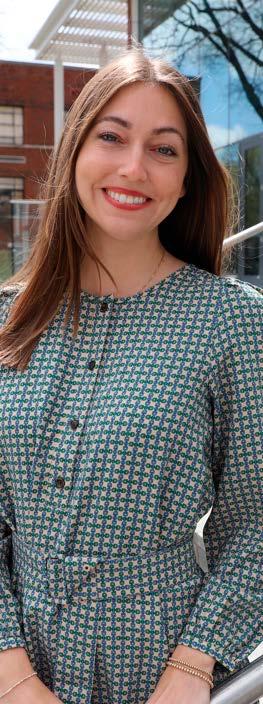
Samples said she did very little outside of going to class when she was an undergraduate student, but she wanted a different experience in law school. She encouraged other students at UK Rosenberg Law to get involved.
“You can make it exactly what you want, and you can make change if you feel like things need to be changed,” she said. “People listen. Your classmates listen. The people in charge listen.”
“
I wanted to feel like I was part of a community.”
Corey Samples
As a first-generation law student and an immigrant, law school has been really challenging for me, but I have fostered many great relationships with lawyers, magistrates, and judges, which has helped me out tremendously. Mentors have helped me overcome many obstacles I have faced throughout my legal career.”
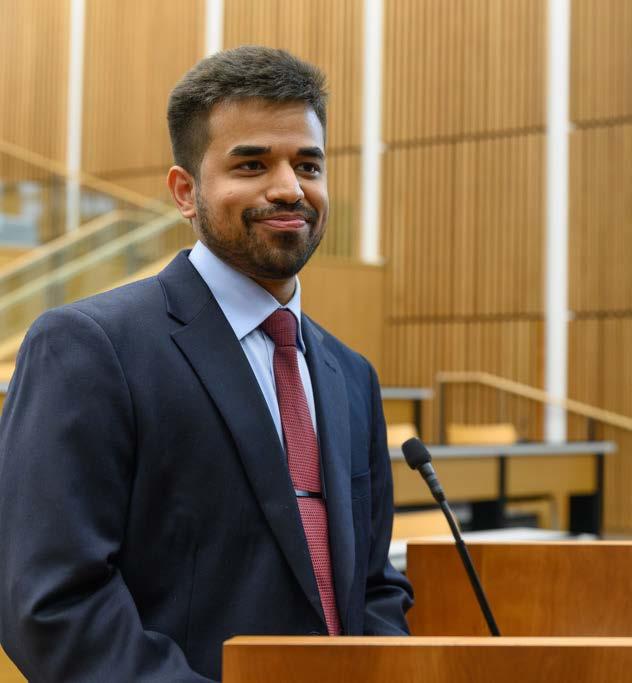 Preet Grewal
Preet Grewal
“
WHERE IS YOUR HOMETOWN? Guntersville, Alabama
TELL US ABOUT YOUR BACKGROUND AND EDUCATION BEFORE LAW SCHOOL.
I completed my undergrad at The University of Alabama where I majored in Political Science/History/Criminal Justice.
WHEN DID YOU FIRST BECOME INTERESTED IN LAW SCHOOL? WHY?
I first became interested in law school when I was a senior in high school. This was when I took my first political theory class. I remember reading John Locke’s “Two Treatises of Government” and falling in love with the legal field.
WHAT DO YOU LIKE MOST ABOUT THE UK ROSENBERG COLLEGE OF LAW?
What I like most about UK Rosenberg College of Law is the camaraderie. I’m around some of the smartest people I’ve ever been around in my entire life. A lot of my classmates and professors are so interesting and really talented and I learn something new from them every single day.
WHAT ACCOMPLISHMENTS ARE YOU MOST PROUD OF?
The accomplishment I am most proud of is the adversity I’ve had to overcome to get to where I’m at today. It’s not easy to get over childhood traumas and being raised in a new country. I still found the courage, studied hard, pursued my dreams. It wasn’t an easy period in my life, but here I am today!
WHAT ARE YOUR CAREER GOALS?
What’s important to me in my career goals is continuing to learn new things and progressing my career at a reasonable pace. I would eventually like to be inhouse counsel for a public company at some point. I believe that position would allow for me to diversify my skillset and perhaps gain some management experience.
WHAT ADVICE DO YOU HAVE FOR ANYONE THINKING ABOUT GOING TO LAW SCHOOL?

My advice for anyone thinking about law school would be to enjoy the time they have prior to making the jump into law school. Law school is demanding and it’s best to scratch things off of your bucket list before you start. Next, I would advise them to get experience. I worked for a large firm prior to starting law school and it gave me a decent idea of what I was getting myself into. Finally, networking. Networking is so important in the legal field and tends to be overlooked but don’t ever underestimate a contact you make in a networking session, because they may open your eyes to an area of the law that you become passionate about.
WHAT HAS BEEN YOUR MOST MEMORABLE EXPERIENCE AT UK ROSENBERG COLLEGE OF LAW?
I was fortunate enough to have many great experiences in law school thanks to my great classmates and excellent faculty, but my single most memorable experience at UK Rosenberg College of Law has to be learning from the great Professor Frost. He was one of my favorite professors and a legend amongst the faculty at UK Law. I’m so grateful to have had the opportunity to be a part of the last class he taught at the law school.
WHAT CHALLENGES/OBSTACLES HAVE YOU FACED WHILE WORKING TOWARD YOUR LAW DEGREE? HOW ARE YOU WORKING TO OVERCOME THOSE CHALLENGES/ OBSTACLES?
As a first-generation law student and an immigrant, law school has been really challenging for me, but I have fostered many great relationships with lawyers, magistrates, and judges, which has helped me out tremendously. Mentors have helped me overcome many obstacles I have faced throughout my legal career. If I could give any advice to an incoming law student, I would advise them to network and find some great mentors. Mine have been invaluable to my legal career.
·
Panel 1: Real Estate, Housing, and Blockbusting
·
Professor Richard Winchester, inperson
Senior Assistant Dean Daniel Murphy Jr., in-person
Moderated by Dillon Curtis, Kentucky Law Journal Staff Editor
·
Professor Steven Dean, participating virtually
·
Professor Phyllis Taite, participating virtually
Moderated by Abby Schueler, Kentucky Law Journal Staff Editor
Panel 3: Wage Enslavement and Prison Entrapment
·
The Kentucky Law Journal’s annual symposium examined issues surrounding the racial wealth gap in the United States, including the history of the racial wealth gap, legal rules that have contributed to its growth, and the tax laws that have exacerbated existing wealth inequalities.
The event was held virtually and in-person in October 2021 in the University of Kentucky J. David Rosenberg College of Law’s G. Chad Perry III Grand Courtroom.

“The subject for today is the long-standing and substantial wealth disparity between families in different racial and ethnic groups in this country,” UK Rosenberg Law Dean Mary J. Davis said in her opening remarks. “In recent Federal Reserve data, the typical white family was calculated to have eight times the wealth of the typical Black family and five times the wealth of the typical Hispanic family.”
According to the Brookings Institution, a think tank, the racial wealth gap reveals the effects of accumulated inequality and discrimination, as well as differences in power and opportunity, that can be traced to the inception of the United States.
The Kentucky Law Journal convened “a stellar array of scholars and policy analysts” to explore the history and policies that have created the disparity, Davis said. The panelists also explored solutions to the problem.
Jennifer Bird-Pollan, a tax law expert and associate dean of academic affairs, helped organize the symposium and commended Editor-in-Chief Kelly Daniel and Special Features Editor Kendra Craft for their dedication to the Kentucky Law Journal and the symposium.
“It is undeniable that the wealth in this country is held inequitably, and that it is getting worse,” Bird-Pollan said. “In 1990, the richest 1 percent of Americans held six times the wealth of the bottom 50 percent. But in 2021, the top 1 percent holds about 16 times the wealth of the bottom 50 percent. Even within those extremes, that wealth is not held equitably by all Americans.”
The median white family’s net wealth is about $188,000. The median Hispanic family’s net wealth is about $36,000. And the median Black family’s net wealth is about $24,000.
“When we see all the ways that individual and family wealth contribute to stability and opportunity in the United States, it is undeniable that white children have advantages from the beginning that are unavailable to their Black peers, and those advantages continue,” Bird-Pollan said.
She said state and federal law and policies have contributed to, and exacerbated, this divide. BirdPollan provided an overview of the topics explored in detail by panelists.
·
·
·
Professor Stephanie Hunter McMahon, participating virtually
·
Professor David Gamage, participating virtually
Professor Goldburn Maynard Jr., in-person
Moderated by David Emerson, Kentucky Law Journal Staff Editor
Panel 4: The Problem with Colorblindness
Dr. Malik Edwards, in-person
·
Professor William Darity, participating virtually
·
Professor Jeremy Bearer-Friend, participating virtually
Moderated by Georgiana Sook, Kentucky Law Journal Staff Editor
Panel 5: The Racial Wealth Gap, Government Health Benefits, and Economic Inequality
·
Professor Bridget Crawford, participating virtually
Professor Palma Joy Strand, participating virtually
·
Professor Nicholas Mirkay, participating virtually
·
Aurora Grutman, participating virtually
Moderated by Holly Couch, Kentucky Law Journal Staff Editor
Panel 6: State-Focused Policy Solutions
·
Cortney Sanders, in-person
·
Jason Bailey, in-person
·
Dr. Rajeev Darolia, in-person
·
Regina Lewis, in-person
Moderated by Jackson Sanders, Kentucky Law Journal Staff Editor
·
·

The Kentucky Journal of Equine Agricultural and Natural Resources Law (KJEANRL) held a virtual symposium March 11, 2022, celebrating the 50th anniversary of the Clean Water Act.
U.S. Senator Jon Tester of Montana, a member of the Energy and Water Appropriations Subcommittee, provided opening remarks. Other speakers included:
Robin Craig Robert C. Packard Trustee Chair in Law at the University of Southern California Gould School of Law
Isabel Escobar chemical engineering professor in the University of Kentucky College of Engineering
·
Cale Jaffe associate professor of law and director of the Environmental Law and Community Engagement Clinic at the University of Virginia School of Law
·
Silvia Alderman former deputy general counsel of the Florida Department of Environmental Protection and head of Akerman’s Water Task Force
The KJEANRL is a multi-disciplinary journal of law, science, and policy published twice annually by the University of Kentucky J. David Rosenberg College of Law. KJEANRL is edited entirely by students of the College of Law. A forum for articles by practitioners, academicians, policy-makers, and other professionals throughout the United States and abroad, the Journal welcomes original manuscripts focusing on the legal, policy, and ethical issues related to the environment, natural resources, land use, and energy. Shorter discussion pieces, descriptions of creative solutions to persistent problems, and commentary on policy and politics are also suitable for publication in the Journal. Each issue also includes notes written by Journal staff members. The Kentucky Journal of Equine, Agriculture, and Natural Resources Law began as the Journal of Mineral Law & Policy in 1984.
When Kelly Daniel and Jocelyn Lucero started law school in the fall of 2019, the world, and their lives, looked a bit different. They had anticipated the challenges that the next three years would bring, but could never have imagined the rollercoaster of moments that would take them to the finish line.
Daniel and Lucero, 2022 graduates, left their mark on the history of the J. David Rosenberg College of Law, holding the distinction of being the first two women of color to simultaneously hold two prestigious student law journal leadership positions.

Daniel, a Boston, Massachusetts native, served as the 2021-2022 editor-in-chief of the Kentucky Law Journal. She was also a member of the Black Law Students Association and the Trial Advocacy Board. Daniel placed third in the Trial Advocacy Board competition during her first year. Lucero, from Paris, Kentucky, served as editorin-chief of the Kentucky Journal of Equine, Agriculture and Natural Resources Law (KJEANRL). During her time at UK, she was involved with the Latino Law Student Association and organized two fundraisers for Kentucky Refugee Ministries.
Since graduation, Daniel has been working as a Natural Resources associate in the Morgantown, West Virginia office of Steptoe & Johnson, PLLC, following in 2023 with a clerkship for U.S. District Court Judge Katherine Menendez in Minnesota. Lucero has been giving back to her community and low-income immigrant families through an associate position at Musillo Unkenholt Immigration Law.
DANIELLE DONHAMStudents from five Lexington high schools visited the law school on Nov. 5, 2021, for the StreetLaw for a Day program, which included a session about law school admissions, a tour of the college, case scenarios, and a lunch with law students, local attorneys and law faculty.
The program, made possible because of a grant from the Kentucky Bar Foundation, brought more than 120 high school students to the University of Kentucky J. David Rosenberg College of Law.
StreetLaw is a student organization dedicated to teaching high school students and members of the Lexington
community about the law and legal system. UK Rosenberg Law students use their legal education to teach reallife lessons in law and government to the students, inspiring them to make positive changes in the community and consider future legal careers.

The student organization at UK Rosenberg Law was inspired by the national non-profit organization that began in 1972 when a small group of law students at Georgetown University Law Center developed an experimental curriculum to teach District of Columbia high school students about the legal system.
McBrayer PLLC recently partnered with the University of Kentucky J. David Rosenberg College of Law to provide an incoming law student a two-week summer opportunity to experience the day-to-day practices and operations of a law firm.
The collaboration is part of the law school’s Bridging the Gap to Success initiative that aims to enhance not only diversity and inclusion in the legal profession but also opportunities for success for lawyers of color.
The McBrayer visitorship gives an incoming law student from a diverse background, ideally a first-generation college graduate, an immersive experience in the firm, said Daniel P. Murphy Jr., UK Rosenberg Law senior assistant dean and chief diversity officer.
The selected student gets “an idea of what the practice of law is like before they enter law
school and, with that two-week program, we also offer a stipend to help that student,” said James H. Frazier II, managing member of McBrayer PLLC.
UK Rosenberg Law student Anjuli Alameddine was selected for the 2021 program. Alameddine said she applied for the program because it offered more than scholarship money.
“This one piqued my interest because it had experience attached to it,” she said.
Alameddine said she visited Frankfort, Kentucky, the state’s capital, learned more about how the government works, and watched a murder trial.
“Our mission here, at the college, is to prepare our students to be leaders across the country and across the Commonwealth,” Murphy said.
“This visitorship, as we work to prepare our students, fits exactly the mission of what we try to do at UK Rosenberg College of Law.”
Frazier said the program allows the firm to get to know exceptional students they wouldn’t have otherwise met.
“So, in my opinion, this is a win-win for all of us, but truly the law firm actually gets the best reward,” he said.
To watch a video about the McBrayer visitorship program, visit law.uky.edu/news/ mcbrayer-law-firm-partners-uk-rosenberglaw.

Retired Kentucky Supreme Court Clerk Susan Stokley Clary, a 1981 graduate of the law school at University of Kentucky, said she could not fathom being a successful law student without social interaction with peers and law professors.

“Law school is an arduous task in the best of circumstances,” Clary said.
In 2020, Clary wanted to do something to help law students at the University of Kentucky J. David Rosenberg College of Law as they adapted to learning from home because of the pandemic.
Clary contacted administrators and staff at the law school and ultimately developed a volunteer mentorship program, pairing firstyear law students with law school alumni.
“We developed a form because I wanted to have some information to find them a good match,” Clary said. The form asks
students for their alma mater, undergraduate major, hometown, type of law that interests them, etc. For the first matches, Clary researched potential mentors on her own and called on friends and acquaintances. Now, alumni interested in the program are asked to complete a mentor form and provide information that will help in pairing alumni and students with some commonalities.
“I want first-year law students to not feel like they’re in it alone,” Clary said. “There is light at the end of the tunnel. They will be successful and have an experienced lawyer tell them that.”
Mentors introduce themselves to their mentee via email, and then they work together to decide how and when to communicate. Clary said she hopes all the mentors will make at least a three-year commitment to the first-year students, seeing them all the way through law school. In addition, the mentorship program is a chance for law alumni to get reconnected to the law school, especially since students have now
returned to in-person learning in the law building.
“We have a great new dean who wants to connect with our law alumni,” Clary said. “This is an opportunity for them to pay it forward, to help out people who are just starting in their law career, and to come see the beautiful new building.”
Anna Stewart Whites, a 1990 law graduate and a mentor in the program, remembers how much acquiring a mentor helped her in law school. She said law school was “like learning a foreign language,” and she felt clueless and frustrated until she got a job with a solo practitioner in Lexington within weeks of starting law school.
“He showed me what practicing law was really about,” she said. “He dragged me to court, let me write deposition questions and see how they worked when he asked them to a witness, and so on. I was exhausted, busy, and loving every minute of it. I worked fulltime all three years of law school and found law to be the most
wonderful, fascinating, enthralling thing ever.”
Whites said she still feels that way 33 years later, and she is eager to help other law students have the same experience.
“It took seeing the why behind the case law and being part, firsthand, of the engaging and captivating way the law and courts actually work to make me love law school,” she said. “I want so much to share that with others.”
Emily Puckett, a first-year law student who applied for the mentorship program in 2021, said she thinks working with a mentor will help her broaden her knowledge of the law. As a firstgeneration law student, Puckett wants to learn more about the vast and diverse opportunities for lawyers.
“I hope my mentor can help guide me as I seek my place in the legal field where my skills, passions, and experiences intersect with the needs of my community,” Puckett said.
Six of the University of Kentucky’s passionate and accomplished educators were surprised in February 2022 by student nominators and the UK Alumni Association as 2022 Great Teacher Award recipients, including two from the UK Rosenberg College of Law: Professors Zachary Bray and Cortney Lollar.

Initiated in 1961, UK’s Great Teacher Award is the longest-running UK award recognizing teaching. In order to receive the award, educators must first be nominated by a student. The UK Alumni Association Great Teacher Award Committee, in cooperation with the student organization Omicron Delta Kappa, then makes the final selection. Recipients receive an engraved plaque and stipend.
Both Bray and Lollar were nominated by law student Michaela Taylor.
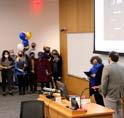
Carolyn S. Bratt, 1985
Zachary Bray, 2022
Rutheford B. Campbell, 1980
Allison Connelly, 2009
Andrea L. Dennis, 2010
William H. Fortune, 2001
Eugene R. Gaetke, 2005
Louise E. Graham, 1989
Robert G. Lawson, 1973 and 2001
Cortney Lollar, 2022
W. L. Matthews, 1978
Martin J. McMahon, Jr., 1996
James R. Richardson, 1974
Robert Schwemm, 2009

As the James and Mary Lassiter Professor of Law, Bray is dedicated to educating the next generation of legal minds serving the Commonwealth.
“To be a lawyer in Kentucky, it can be such a special thing for the state. But you know, even beyond that, I think we have the ability to work on so many different things that are important to Kentucky because so many of Kentucky’s lawyers and judges and legislators and governors are coming through the school,” Bray said.
A native of Lexington, Bray began teaching in the Rosenberg College of Law in 2016. Prior to entering academia, Bray worked for Judge Jennifer B. Coffman of the U.S. District Court for the Eastern and Western Districts of Kentucky, for Judge Carolyn Dineen King of the United States Court of Appeals for the Fifth Circuit, and as an attorney at Munger, Tolles & Olson LLP in Los Angeles, California.
He has taught classes on the topics of property, natural resources, real estate transactions, water law, land use, administrative law, payment systems, and related writing seminars.
His research on low-income housing, private land trusts, the Endangered Species Act, groundwater conflicts, religious land use and monument laws has been published or reprinted in the William & Mary Law Review, the Brigham Young University Law Review, the Harvard Environmental Law Review, JOTWELL and other leading journals.
“It is the greatest gift that you can get as a teacher; to know that you have students who feel that way about your teaching,” Bray said. “I think I’m probably the luckiest academic in the country. I really do.”

As the James and Mary Lassiter Professor of Law, Lollar enjoys the reciprocal learning relationship between herself and her students.
“I love the process of helping students learn — and they help me learn. It’s an ongoing conversation. They help me to think about both the law and the world in ways that I might not,” Lollar said. “I am hopeful that many of our students are going to go out there and do amazing things that are going to change the world. I am not only hopeful, I feel fairly confident in saying that.”
Lollar previously served as a public defender, representing adult and juvenile defendants at the trial and appellate levels in Georgia and Washington, D.C. She has also served as a legal consultant in India for the Initiative for Medicines, Access and Knowledge (I-MAK) and as a research assistant to the United Nations Special Rapporteur on Violence Against Women.
“I care very deeply about what’s going on in the criminal legal system and the issues there,” she said. “I want my students to have a sense of how the law operates in practice, not just in theory. So that’s very important in terms of how I teach.”
Lollar teaches and researches in the areas of criminal law, criminal procedure and evidence, with a particular focus on the intersections among criminal law, remedies, race, gender, sexuality and social science.
Her work has been cited by the United States Supreme Court as well as federal and state courts. Lollar’s expertise in criminal law and procedure have led to her invited testimony before the Department of Defense Judicial Proceedings Panel on sexual assault in the military and Chief Justice Roberts’ Ad Hoc Committee to review the Criminal Justice Act Program (also known as the Cardone Commission).
“The reason I do what I do is because of my students and to have a student take the time to (nominate me for this award) and even to feel that way — to consider me in that light,” Lollar said. “I am deeply touched and deeply moved by the honor.”
In 2021, Lollar was awarded the Duncan Teaching Award, which is presented annually – courtesy of the Robert M. and Joanne K. Duncan Faculty Improvement Fund, to a UK Rosenberg Law faculty member for excellence in the classroom.


The University of Kentucky J. David Rosenberg College of Law community – including alumni, faculty, staff, students and others in the legal community – gathered on Dec. 3, 2021, in the Cooper Classrooms on the third floor of the law building to celebrate Professor Allison Connelly’s 25 years of service to the law school.
Connelly joined the law school faculty in 1996 as the first director of the college’s Legal Clinic. In the Legal Clinic, third-year students advise, counsel and represent needy clients on a variety of civil legal matters. The students also interview clients, draft legal documents, file pleadings, and conduct discovery.
In addition to serving as the Legal Clinic’s first director, Connelly also helped create the Kentucky Legal Education Opportunity Program, which aims to increase the number of historically under-represented students in Kentucky’s public law schools.
Prior to joining the law school, Connelly spent 13 years as a state public defender providing direct representation, including death penalty representation, to needy individuals at all levels of the criminal justice system. She rose through
the ranks to become the only woman ever named as Kentucky’s Public Advocate, the head of Kentucky’s statewide public defender system.
Professor Connelly has numerous published appellate decisions to her credit, including Commonwealth v. Chestnut, 250 S.W.3d 655 (Ky. 2008), a major open records case. She received her B.A. degree from the University of Kentucky and her J.D. degree from the University of Kentucky College of Law.
Connelly taught litigation skills, criminal procedure, criminal trial process and legal writing. She also served as director of the Kentucky Legal Education Opportunity Summer Institute.
She is the founder of the Kentucky Intrastate Mock Trial Competition and coached the college’s trial teams. Connelly has received numerous awards for teaching and public service, including the 2016 Duncan Teaching Award, 2016 University of Kentucky’s Lyons Award for Public Service, the 2015 Kentucky Bar Association’s Donated Legal Services Award, the 2011 Kentucky Bar Association’s Service to Young Lawyers Award, and the 2009 UK Alumni Association Great Teacher Award.
During the retirement celebration, the college announced the creation of the Allison Connelly Seek Justice Awards, which will honor Connelly’s love for and commitment to the students at the law school.
The award will recognize three students every year. One award will be given to a third-year law student who has made extraordinary contributions to the Legal Clinic. One award will be given to a second-year law student who has demonstrated excellence as a member of the college’s Trial Advocacy Board. Finally, one award will be given to a first-year law student who demonstrates exceptional legal aptitude.
For more information on the Professor Allison Connelly Seek Justice Awards, visit https:// uky.networkforgood.com/causes/18047-seekjustice-award-fund
D’lorah Hughes joined the college in June 2022 as the new director of legal clinics and externships and associate clinical professor of law. She previously served as director of externships and as an adjunct professor at the University of California, Irvine School of Law.
Zachary Bray was one of six University of Kentucky educators to receive the 2022 Great Teacher Award, the longest-running UK award recognizing teaching.
Christopher Bradley is the 2022 recipient of the Duncan Teaching Award, which is presented annually – courtesy of the Robert M. and Joanne K. Duncan Faculty Improvement Fund, to a UK Rosenberg Law faculty member for excellence in the classroom.

Melissa N. Henke was recently appointed by UK Rosenberg Law Dean Mary J. Davis to the board of AppalReD Legal Aid. Henke fills a position designated for

the law school
Cortney Lollar was recently named the Norman and Carole Harned Law & Public Policy Professor. Lollar was also one of six University of Kentucky educators to receive the 2022 Great Teacher Award, the longest-running UK award recognizing teaching. Lollar was also the 2021 recipient of the Duncan Teaching Award, which is presented annually – courtesy of the Robert M. and Joanne K. Duncan Faculty Improvement Fund, to a UK Rosenberg Law faculty member for excellence in the classroom.

University of Kentucky J. David Rosenberg College of Law Professor Joshua Douglas has been selected to join The American Law Institute (ALI), the leading independent organization in the United States producing scholarly work to clarify, modernize and otherwise improve the law.

ALI members include eminent judges, lawyers and law professors from across the United States and many foreign countries. Members are selected based on professional achievement and demonstrated interest in improving the law.
“Becoming a member of the ALI is a signature accomplishment in the legal profession, and especially in the legal academy,” UK Rosenberg Law Dean Mary J. Davis said. “This competitively selected membership is difficult to achieve. Josh was nominated by his peers in the election law field; a law professor cannot be nominated by someone on their own faculty. This fact alone makes Josh’s selection meaningful.”
New members are nominated by an ALI member, with seconding letters from an additional two members. The council or executive committee then elects new members three times a year based on recommendations by a membership committee. Douglas was one of 60 new members elected in July 2022.
This is only the fifth time a UK Rosenberg Law professor has been elected to become a member of the organization. Other UK Rosenberg Law members include professors David A. Brennen, Kathryn Moore and Sarah Welling, emeritus, as well as Dean Mary Davis.
Douglas, the Ashland, Inc.-Spears Distinguished Research Professor of Law, teaches and researches election law and voting rights, civil procedure, constitutional law and judicial decision making. He is the author of “Vote for US: How to Take Back our Elections and Change the Future of Voting.” His most recent legal scholarship focuses on the constitutional right to vote, with an emphasis on state constitutions, as well as the various laws, rules and judicial decisions impacting election administration. He has also written extensively on election law procedure.
Douglas earned his J.D. from George Washington University Law School, where he was an articles editor on the GW Law Review. Prior to joining UK, Douglas clerked for Judge Edward C. Prado of the U.S. Court of Appeals for the Fifth Circuit and practiced litigation at the law firm of Akin, Gump, Strauss, Hauer & Feld.
“The ALI does really important work to offer solutions for law reform,” Douglas said. “For example, members of Congress recently consulted the ALI in crafting the new proposed reform to the Electoral Count Act, which dictates how Congress counts electoral college votes. I’m honored to join this organization and am flattered that my colleagues believe I can help in the ALI’s vital work.”
The University of Kentucky J. David Rosenberg College of Law is pleased to announce that Melynda J. Price, Ph.D., has been appointed as the inaugural J. David Rosenberg Professor of Law.
The Rosenberg Professorship is one of the elements of the 2019 Rosenberg Law Endowment created by alumnus J. David Rosenberg and his wife, Dianne, to provide the College of Law resources for students, faculty and programs. Rosenberg Professorships provide support to attract and retain faculty who “demonstrate intellectual excellence and promise, and an outstanding performance on behalf of the college.”
“Dr. Price’s accomplishments and contributions at the Rosenberg College of Law exemplify intellectual excellence and outstanding performance on behalf of the college,” UK Rosenberg Law Dean Mary J. Davis said. “She is an invaluable member of our world-class faculty. She is not only an excellent law professor but also a leader at the university and in our community.”
The dean made the appointment in consultation with the college’s elected Faculty Executive Committee.
Price joined the law school faculty at UK in 2006 after completing a Ph.D. from the University of Michigan in political science and a law degree from the University of Texas. In addition to being a professor at the law school, she is currently director of the University of Kentucky Gaines Center for the Humanities.

Her scholarship has been published in a variety of peer-reviewed social science and law journals. She is the author of “At the Cross: Race, Religion and Citizenship in the Politics of the Death Penalty.” In 2017, she was named a University Research Professor, awarded by UK to faculty for outstanding research achievements.
Price co-organized the 2019 Kentucky Law Journal Symposium on preservation of monuments, titled “Written in Stone: American Monuments and Monument Protection Laws,” with the proceedings published in the Kentucky Law Journal.
She continues to pursue scholarship in preservation techniques to educate the local Black community about the role of archives in cultural preservation. The primary focus of her research has been on race, gender and citizenship, the politics of punishment and the role of law in the politics of race and ethnicity in the U.S. and its borders. Her recent research projects explore services for Black victims of crime, building on her previous study of advocacy and support groups started by Black mothers of murdered children, which systematically examines the victims’ rights movement and victim services typically housed in prosecutors’ offices in response to critiques of inattentiveness to race and racism within the criminal justice system. Her research on Black victims and victim services in Kentucky is in progress. Her research will soon be published in The Journal of Race, Ethnicity and Politics and in The Sexual Politics of Black Churches.
Price was a 2016-17 fellow in the Law and Public Affairs Program at Princeton University. She serves on the UNited in True racial Equity (UNITE) Research Priority Area Advisory Board at the university.
In addition to her national and international research, Price is a prior recipient of the Robert M. and Joanne K. Duncan Excellence in Teaching Award, presented annually to a UK Rosenberg Law faculty member for excellence in the classroom.
While much of the rest of the economy shrunk, the COVID-19 pandemic brought growth to businesses relying on a multi-level marketing structure—“MLMs.” Generally speaking, an MLM is an enterprise where participants not only sell goods and services but also market the opportunity to become a participant who will, in turn, sell not only goods and services but the opportunity to sell goods and services, and so on.
There is an MLM participant in at least one in six American households. As of 2019, MLMs brought in more than $35 billion in sales, and in 2020, these figures grew by 14% to more than $40 billion. The coronavirus-fueled growth of MLMs itself formed another type of pandemic— an “MLM pandemic.” The MLM pandemic spreads through widespread exaggerations and misrepresentations about health products and earnings possibilities.
State and federal authorities have been scrambling to stop the MLM pandemic. For decades, MLMs have drawn scrutiny from regulators and consumer advocates because, to put it bluntly, almost all of them are bad for almost all of their participants. While some MLMs are straightforwardly illegal and can be classified as simply “pyramid scheme” scams, other MLMs are not easy to classify and fall into a gray area between legitimate sellers of viable products and scams designed to extract maximum money from participants. Seemingly legitimate MLMs often artfully craft their structures to rely on endless “churn” through new recruits—the hallmark of an illegitimate pyramid scheme—while purporting to rely on legitimate product sales. As a result, distinguishing whether MLMs are lawful or unlawful is difficult and time-consuming. Also, regulators lack the sweeping legal rulemaking and enforcement authority they would need to properly curtail these subtle structural abuses of the MLM form. In light of these limits, regulators have focused on addressing misrepresentations by MLMs and their participants, which are easier to identify and to police.
The COVID-19 pandemic provided the perfect host, as it were, for the spread of MLMs. MLMs and their participants commonly advertise MLMs, via social media, as providing the opportunity to earn immediate income on a flexible work-from-home schedule. In light of this, there are at least five distinct but interrelated ways in which the COVID-19 pandemic fostered a rich environment for the proliferation and replication of MLM schemes:
1. Unemployment. Millions of jobs were lost, and people were desperate for immediate ways to earn money to make ends meet.
2. Working from home. People were eager to work from home because jobs outside of the home were risky due to potential disease exposure, and often, they needed to supervise children.
3. Flexibility. Many people needed flexible employment because they needed to provide childcare or care for other members of the household. This concern arose because traditional caregiving contexts such as daycares, schools, and assisted living centers were closed or had their operations sharply restricted. Informal employment opportunities also seemed more acceptable and desirable because of the increasingly widespread adoption of “gig economy” or “side-hustle” types of work.
4. Social media. Many people were attracted to businesses using online platforms because they were spending more time online, including by engaging with others on social networks as a replacement for in-person socializing opportunities that have been restricted during the pandemic.
5. Health concerns. Many people were attracted to health-related products and businesses because of heightened concerns about disease—including concerns stoked or shaped by misinformation on the internet, particularly through the same social media channels through which MLMs are often promoted.
Data gathered during the pandemic suggests the first three factors tended to affect women much more than men because they bore the brunt of pandemic-related job loss and increased childcare responsibilities. These factors take on particular importance because MLMs traditionally have targeted women more than men. There is also evidence that MLMs may appeal more to those with fringe or non-mainstream beliefs of various sorts and thus, the fifth factor may also have particular force in aiding the proliferation of MLMs. The MLM pandemic is therefore particularly disturbing because the impact of MLMs is focused on the already vulnerable groups that were most significantly impacted by the COVID-19 pandemic. And, as with other inequalities that have been deepened over the last year, the MLM pandemic will likely continue long after the COVID-19 pandemic is in the rear view mirror.
Comprehensive change to the regulation of MLMs will remain elusive until the FTC is provided with stronger legal authority. But some powerful means are already available to curb MLMs’ worst abuses. The FTC has pursued a strategy of sending numerous informal warning letters concerning misrepresentations on social media, and it has also taken formal enforcement action against numerous bad actors, including some MLMs, who have taken advantage of the COVID-19 pandemic to scam consumers. Some evidence suggests that these efforts have been effective. Other federal and state regulators can and should pursue similar steps.
There are two additional means of stemming the tide of MLM-related consumer abuses. Regulators could seek the cooperation of social media companies that play a crucial role in modern MLM structures. These companies could take more steps to police health- and earnings-related misrepresentations on their platforms by MLMs and their participants. If they are not willing to take that step, they could work to provide regulators with easy access to MLM-related postings in order to aid law enforcement and consumer advocacy groups.
Additionally, there may be a role for selfregulatory action by MLM industry associations. Although self-regulatory organizations often lack the degree of zeal or objectivity necessary to police abuses, they can play a helpful role in setting and enforcing industry standards and may be able to induce compliance through nimbler and less formal means than government regulators. So far, MLM industry organizations do not seem to have been effective at selfregulation, but this may be a way of providing at least some incremental protection against the most abusive players in this controversial space.
1
These thoughts emerge from an article I published with Hannah E. Oates, a brilliant 2021 graduate of the University of Kentucky J. David Rosenberg College of Law. (But she shouldn’t be held responsible for anything that is wrong in these particular comments.)

The John G. Heyburn II Initiative for Excellence in the Federal Judiciary and the UK J. David Rosenberg College of Law presented A Conversation with Peter S. Canellos, author of The Great Dissenter: The Story of John Marshall Harlan, America’s Judicial Hero, on April 13, 2022, in the G. Chad Perry III Grand Courtroom of the law building.
The Heyburn Initiative was founded in 2016 by Dr. Martha Heyburn to honor the legacy and mission of her late husband U.S. Senior District Court Judge John G. Heyburn II. It is a nonpartisan initiative devoted to the preservation and study of U.S. judicial history.
Heyburn as well as UK President Eli Capilouto and UK Rosenberg Law Dean Mary J. Davis gave remarks before the presentation.

Heyburn welcomed Canellos, calling him a “brilliant researcher, journalist, author, and political analyst.”
“Judge Heyburn believed that while opinions carry the weight of mandates, they’re really a part of an ongoing conversation, and this work of Peter Canellos certainly illustrates that,” she said.
The Great Dissenter is the tale of how a former slave owner – with the help of a once-enslaved man who grew up alongside him and was believed to be his half-brother – changed American law.
The biography details John Marshall Harlan’s fight for civil rights and economic freedom in a changing country with the help of Robert Harlan, an enslaved man who was raised in the same household. His dissents on the Supreme Court, particularly in Plessy v. Ferguson, have been widely read for decades.
U.S. District Judge Gregory F. Van Tatenhove said the story of the judicial hero reminds us of our humanity, because Harlan was not perfect, and our potential.
“Harlan was able to rise above prejudice and experience for a more hopeful and greater good,” Van Tatenhove said.
Canellos said his journey that led to the book started when he took a class in civil rights and social change as a law student. He discovered Harlan’s dissents in his casebooks.
“Here was a person who was writing in a very different voice, advancing a very different conception of justice, making reference to other considerations in the law that were not being acknowledged by his judicial contemporaries, and yet his dissents fit so comfortably into the current jurisprudence,” Canellos said.
Canellos is a graduate of the University of Pennsylvania and Columbia Law School. He is managing editor for enterprise at POLITICO, and he spent most of his career at The Boston Globe, where he oversaw the local news coverage and Washington, D.C., bureau.
“ Judge Heyburn believed that while opinions carry the weight of mandates, they’re really a part of an ongoing conversation, and this work of Peter Canellos certainly illustrates that.”

 Dr. Martha Heyburn
Dr. Martha Heyburn
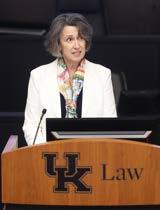

Kami Griffith (2021) has joined Morgan Pottinger McGarvey as an associate. Griffith will focus primarily on banking and finance law and commercial real estate law, while also supporting the firm’s foreclosure and loan document negotiation work.
William B. Kilgore (2020) joined Stites & Harbison, PLLC in Lexington, Kentucky. Kilgore’s practice focuses on all aspects of commercial real estate, including acquisition, disposition, financing and leasing.
Gentry C. Collins (2018) joined Stites & Harbison, PLLC in Lexington, Kentucky as an attorney in the Trusts & Estates Service Group.
Dylan Merrill (2016) joined Helpware as vice president, head of legal and compliance. Helpware is a Lexington-based digital customer service company.
Drake W. Staples (2016) joined Stites & Harbison, PLLC in Lexington, Kentucky, as an attorney in the Construction Service Group.
Kevin Chistopher Havelda (2015) of Johnson Muffly & Dauster, PC has accepted an engagement as the Kentucky YMCA Youth Association’s outside legal counsel on a pro bono basis.
David Thomas Newton (2010) began a one-year detail at the National Security Council’s African Affairs Directorate as a Policy Advisor in March of 2021, covering the Great Lakes region.
J.R. Skrabanek (2009) of Thompson & Skrabanek, PLLC, co-founded a boutique commercial litigation firm headquartered in New York City during the pandemic.
Kimberly O’Donnell (2008) has been named managing partner at Dentons Bingham Greenebaum LLP in Lexington, Kentucky.
Brandi Michelle Stewart (2007) was appointed to the deputy civil chief position in the U.S. Attorney’s office, Southern District of Ohio.
C. Thomas Payne (1995) serves as lead counsel and vice president at Wells Fargo Bank in Minneapolis, Minnesota.
Brian F. Haara
(1993) has moved his practice back to Fultz Maddox Dickens PLC after 15 years as a partner with a commercial litigation boutique firm.
Trevor Graves
(2004), an attorney with Stites & Harbison, PLLC in Lexington, Kentucky, has been selected as member of the 2022 Leadership Kentucky program.
Cassidy Rosenthal (2002) was appointed by Commerce Lexington as chair-elect of its board of directors for 2022. Her term as chair will begin in 2023.
T. Morgan Ward, Jr. (1989) of Stites & Harbison, PLLC was appointed by Gov. Andy Beshear to the Kentucky Personnel Board.
Mark Stephen Medlin (1986) of Medlin Law Office was appointed 59th Judicial District Judge, which becomes the newly merged 1st Judicial District effective Jan. 1, 2023.
(1998) was appointed as an assistant attorney general in the U.S. Virgin Islands in January 2021. In August 2021, the governor appointed Pryor to be the director of the White Collar Crime and Public Corruption Unit for the 3 island [St. Thomas, St. John & St. Croix] territory.
Lynn Pryor
Chrisandrea Turner (1998) was named chair-elect of the Bankruptcy Law Section at the Kentucky Bar Association’s Bankruptcy Law Section annual meeting. The Stites & Harbison, PLLC attorney will serve a one-year term.
Timothy Crawford (1984) of Crawford Law Office in Corbin, Kentucky, was appointed by Gov. Andy Beshear as a Special Justice to the Kentucky Supreme Court to hear the case: Linda J. Holt, et. al. v. Thompson Fine, LLP, No. 2019-SC-596.
Bill Geisen (1982), a partner at Stites & Harbison in Covington, Kentucky, has been elected to the Board of Governors of the American College of Construction Lawyers.
(1996) was appointed to the Drug Free Sport International’s Horseracing Integrity & Welfare Unit Advisory Council, the newly appointed independent Anti-Doping and Medication Control entity for horseracing in the United States.
Sonja S Keating
Elizabeth Lee Thompson (1982) was named Woman of the Year for 2021 by the Fayette County Bar Association’s Women Lawyers’ Association. Thompson is a partner in the Stites & Harbison PLLC Lexington, Kentucky office.
Greg Cornett
(1995) was promoted to vice president and deputy general counsel. In this new role, Cornett oversees legal support for litigation, environmental and labor and employment work across the PPL enterprise in three states.
William L. Davis (1977) became a member of the Million Dollar Advocates Forum with membership limited to attorneys who have won million and multimillion-dollar verdicts and settlements.
John D. Meyers (1977), executive director of the Kentucky Bar Association, was recently awarded the National Association of Bar Executive’s President’s Award of Excellence.


The college’s Law Alumni Association hosted the 2020/2021 Hall of Fame Induction Ceremony and Awards Night in the G. Chad Perry III Grand Courtroom on Friday, Oct. 8, 2021. The event was held in conjunction with Homecoming festivities, including an Open House and book signing of “The Man from Whitman Creek: A Biography of Robert G. Lawson” by William H. “Bill” Fortune. Both Lawson and Fortune are professors emeritus at the law school.






 Jennifer Barber
Jennifer Barber
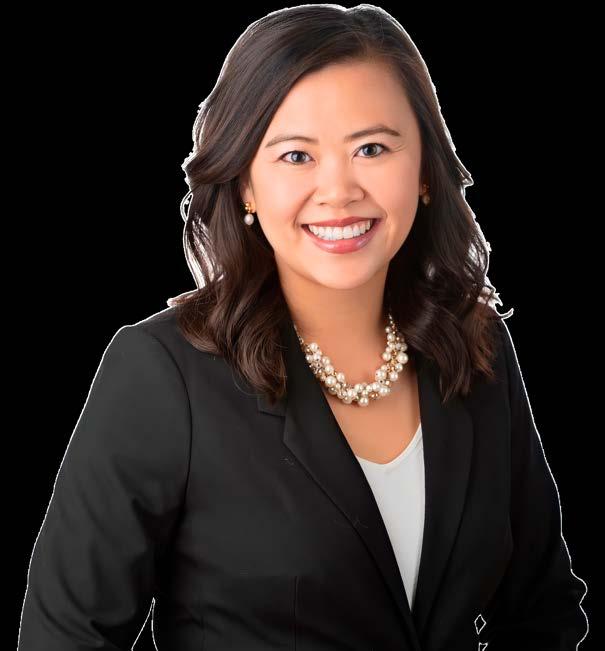
“
I want to have an impact on young attorneys and professionals as well as women and minorities. I want them to know they can achieve whatever they put their minds to.”
Tax attorney Jennifer Barber (B.A. 2005, J.D. 2008) attributes much of her success to her access to education. As the daughter of Chinese immigrants, she is the first in her family to graduate from high school, college and law school. She is proud and determined to pay it forward by influencing economic development policies and helping other first-generation students.
“I want to have an impact on young attorneys and professionals as well as women and minorities. I want them to know they can achieve whatever they put their minds to,” Barber said.
In 2022, Barber was promoted to Louisville member-in-charge at Frost Brown Todd, LLC, the largest law firm in Kentucky. She is the first female to manage the office of 158 attorneys and 297 professionals.
Barber has an incredible platform for encouraging others in their educational quests. Plus, her recent service as U.S. Delegate to the United Nations cemented her role as a champion for women and children around the world who need assistance.
“The U.S. is the largest single donor of humanitarian aid in the world, so to help deliver assistance to other countries and see firsthand the positive impact our country has on the rest of the world was amazing,” she said.
Barber’s parents immigrated to Frankfort, Kentucky, where they learned English and ran a successful restaurant for 41 years. Barber literally grew up in the restaurant, helping with whatever
to begin law school and connected her to professors who became mentors.
During law school, the self-professed “tax nerd” appreciated how tax law facilitates opportunities for others by helping create jobs. In addition to the opportunity to work on tax disputes and economic incentive negotiations at Frost Brown Todd, she’s also grateful for the firm’s generosity in the community through pro-bono work and initiatives to support law students. The firm provides mock interviews so first-generation law students can learn how to navigate the law school admissions season and job searches. Plus, the firm mentors Louisville high school students through a pre-law program, which helps students prepare for college and law school choices.
“We help students that don’t have the resources or contacts to learn these things. It’s really important that law school graduates show others the road map. It’s my goal to serve as an example to people who may not believe that it is possible to get a college or law degree.”
she could, such as ironing napkins, washing dishes, and seating customers.
“My parents aren’t formally educated, but they’re the smartest people I know. They emphasized education and the opportunity that provides, and they instilled a strong work ethic in me.”
Barber attended the University of Kentucky, receiving a communications degree before entering the law school at UK as a Kentucky Legal Education Opportunity (KLEO) scholar. The KLEO orientation program helped her prepare
Barber’s good experiences have secured her 6and 8-year-old daughters’ futures.
“There is no question that my daughters will attend college,” she said. “Going to UK law (school) has unlocked opportunities for me, but more importantly, it changed the trajectory of my family.”
RUTH PAARMANNIn 2022, Barber was promoted to Louisville member-incharge at Frost Brown Todd, LLC, the largest law firm in Kentucky. She is the first female to manage the office of 158 attorneys and 297 professionals.
When you come from a small town in Kentucky, how do you land a position as an attorney in New York City? Ask Colin Roberts (J.D. 2008). The Versailles native wrote to every UK law school alumnus he could find in New York and Washington, D.C., and one alumna — Brook Ventura (J.D. 2001) — took a chance on him. To honor her goodwill, Roberts and his wife, Pam, established a scholarship endowment in Ventura’s name to assist promising students who have financial need.
“For a kid from a town of 8,000, the idea of working in New York City was very intriguing but seemed out of reach,” Roberts said.
“When I decided to seek opportunities in larger markets, I knew it would be an uphill battle
because I lacked meaningful connections,” he said. “But I thought other UK law (school) grads were likely to relate to my career goals, so I found every UK law grad in New York and D.C. and sent them all cover letters and resumes. One of those people was Brook, who was a senior associate at Alston & Bird in New York.”
Ventura landed an internship at a San Francisco firm with the help of another alum, so she paid it forward. She interviewed Roberts for a summer associate position, which led to a fulltime position working on corporate governance, mergers and acquisitions, and securities law for five years.
“It changed my career trajectory and opened up a new world of possibilities,” Roberts said.
Even with their friendship as coworkers, Ventura was surprised he created a scholarship in her honor.
“I was so touched and flattered. I didn’t realize the impact it made on him,” she said. “I love that he’s paying it forward in this way. The scholarship I had to UK law was what helped me decide to go there.”
Robert’s next role was as general counsel with Parsley Energy in Texas. He built the oil and gas company’s legal team as it worked toward its initial public offering in 2014. The IPO topped $925 million, and the company grew to over 500 employees and sold for $7.5 billion in 2021.
“It was an incredibly challenging and rewarding experience. One of the best parts was helping create high-quality jobs for our employees. I’m very proud of that.”
Since then, Roberts served as general counsel of Freedom Solar, the largest solar installation company in Texas. He and Pam have loved central Texas, where Roberts served on the board of the Seton Fund, a healthcare nonprofit, and helped coach his kids’ soccer teams. Now, they are moving to Birmingham, Alabama, near where Pam grew up and where her entire family lives.
Roberts is joining Bruno Event Team, a sporting events management firm, as chief operating officer.
“Your success depends on a lot of people helping you along the way. Brook gave me a career opportunity that changed the course of my life. Pam and I are hopeful that this scholarship, and the story of Brook’s generosity, will inspire others and help them achieve their personal and professional ambitions. We all have a responsibility to use our time and resources to help others.”
“
Your success depends on a lot of people helping you along the way. Brook gave me a career opportunity that changed the course of my life. Pam and I are hopeful that this scholarship, and the story of Brook’s generosity, will inspire others and help them achieve their personal and professional ambitions. We all have a responsibility to use our time and resources to help others.”
Colin RobertsRUTH PAARMANN

Everything we do touches on the law in some way, shape, or form. As a public defender, I was able to make a real impact on the lives of those in my community every single day. It’s an amazing thing to be able to do as a lawyer.
 Chelsea Granville Reed
Chelsea Granville Reed
Lexington native Chelsea Granville Reed (J.D. 2015) never envisioned herself as an attorney — that is, not until it became clear to her that lawyers can have a positive impact on people
“Everything we do touches on the law in some way, shape, or form,” said Reed, a former public defender, now a senior managing associate at Dentons Bingham Greenbaum LLP. “As a public defender, I was able to make a real impact on the lives of those in my community every single day. It’s an amazing thing to be able to do as a lawyer.”
Reed has followed an intriguing career path. After graduating from the University of Virginia, she worked for an educational nonprofit, City Year. When deciding her next step, a mentor pointed out that law is a broad and welcoming career option. Soon, she moved back home to attend the University of Kentucky College of Law – now UK J. David Rosenberg College of Law – and its Kentucky Legal Education Opportunity (KLEO) Institute. Conversations with KLEO sponsor Professor Allison Connelly, Senior Assistant Dean Danny Murphy, Professor Melissa Henke, Professor Cortney Lollar, and others guided her in law school and beyond.
After graduating, Reed served as a public defender for the Marion County Public Defender Agency in Indianapolis. She worked on increasingly complex misdemeanor, D felony, and major felony cases.
“It was trial by fire, but it was great. I gained incredible trial experience that I never would have imagined, and which most new lawyers do not get,” she said.
The confidence she gained in the courtroom shapes how she operates today. She became aware that success doesn’t always happen in the courtroom. As a public defender this meant supporting clients in a transition to stable housing, rehabilitation facility, or reunions with their children.
Another pivotal experience for Reed was her clerkship with Magistrate Doris L. Pryor, a judge in the United States District Court for the Southern District of Indiana — and President Biden’s most recent Seventh Circuit nominee.
“It was incredible to work alongside a jurist who looks like me,” Reed said. “And it was invaluable to be in chambers with ‘Team Pryor,’ working collaboratively and getting a firsthand look at the legal process from the
Now, Reed focuses on helping business owners navigate legal challenges. While client success looks a bit different, zealous and effective advocacy remains a constant.
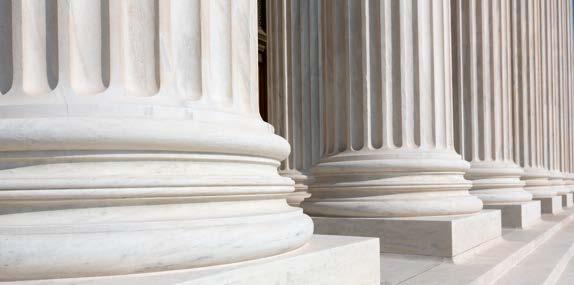
“I’m a commercial litigator now, but I have the advantage of courtroom experience coupled with focused training in legal writing. Previously, I honed my skills as an oral advocate, whereas now, I advocate for my clients on paper.”
One year after joining Dentons, the firm promoted Reed and nominated her for the Leadership Council on Legal Diversity Pathfinder Program. As a 2022 Pathfinder, Reed is participating in a year of professional development that focuses on creating diverse leaders in the legal field. She’s enjoying talking to others about overcoming their challenges while setting goals and developing her own leadership skills.
As a reminder of the impact she can have as an attorney, Reed keeps a letter from a former client in her office.
“Client service drives me to be a strong advocate,” she said. “It is very fulfilling.”
 RUTH PAARMANN
RUTH PAARMANN
Justice Bill Cunningham was elected to the Supreme Court of Kentucky in November 2006 to serve the 1st Supreme Court District. He retired in February 2019. Before becoming a member of the state’s highest court, Cunningham served on the Circuit Court Bench in the 56th Judicial Circuit, which consists of Caldwell, Livingston, Lyon and Trigg counties. He was elected in November 1991, re-elected in 1999, and served until January 2007.

Cunningham served the court system in several capacities before entering his judicial career. He was the Eddyville City Attorney from 1974 to 1991 and the public defender for the Kentucky State Penitentiary from 1974 to 1976, and as Commonwealth’s Attorney for the 56th Judicial District from 1976 to 1988. During his tenure in that position, he was voted the Outstanding Commonwealth Attorney of Kentucky by his peers. He also served as a hearing officer for the Kentucky Board of Claims from 1981 to 1985 and as a trial commissioner for Lyon County District Court from 1989 to 1992.
He is a 1966 graduate of Murray State University (MSU), where he served as student body president. He is a Distinguished Alumni of MSU, and has served as adjunct professor since his retirement. He went on to become a University Of Kentucky College Of Law graduate of the class of 1969. While in law school, he was a member of the Kentucky Law Journal staff and editor of the law school newspaper, “The Kentucky Commentator.”
He has authored numerous books on regional history, as well as written for various newspapers and magazines. His “On Bended Knees: The Night Rider Story” is considered the definitive work on the tobacco wars of western Kentucky and western Tennessee (1904-09).
He is a veteran of the U.S. Army, having served as a captain in Vietnam, Korea and Germany. He and his wife, Paula, have five sons and 16 grandchildren.
has served on the Board of Governors of the KBA as well as the Fayette County Bar Association. He has served on the Kentucky Supreme Court’s commission on gender bias and led the recent effort to survey the Bench and Bar on race, gender and LGBT attitudes in our legal system. Ernesto chaired the Commission that helped institute Family Courts in Kentucky and helped secure funding of Kentucky’s Drug Courts.
Ernesto Scorsone
Scorsone served in the Kentucky Legislature: 12 years in the House and 12 years in the Senate. He was a champion of health care reforms, improved funding of our public school system and civil rights legislation. Scorsone also served as Fayette Circuit Court Judge for 13 years. During his tenure he instituted Fayette County’s first conciliation conferences to avoid residential foreclosures.
For the past 40 years, Scorsone has been a strong advocate for LGBT rights. He was lead counsel in Commonwealth v. Wasson, which overturned Kentucky’s fourth-degree sodomy statute. He helped enact a fairness ordinance in Lexington and led many fundraising campaigns for the LGBT community. Most recently he helped create a $2 million permanent endowment to fund LGBT education efforts throughout the state. In 2010, Scorsone was inducted into Kentucky’s Civil Rights Hall of Fame.
Scorsone earned an undergraduate degree in political science from the University of Kentucky in 1973, and went on to earn his Juris Doctor from the same institution in 1976.
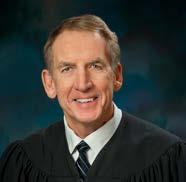
Robert Vance, a native of Grant County, Kentucky, earned a business degree (1965) and law degree (1968) from the University of Kentucky. Vance also holds degrees from the Stonier Graduate School of Banking at Rutgers University and the Executive Banking Institute at the University of Louisville.
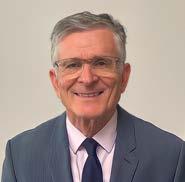
Vance was appointed to the University of Kentucky Board of Trustees in 2014 and currently serves as the chair, a position he has held since 2019. Additionally, he has served on numerous board committees, including the Executive Committee as vice chair; chair of the University Health Care Committee; and member of the Audit and Compliance, Finance, and Investment Committees. Vance has spent most of his career in banking, serving as chairman or senior officer of several banking institutions across Kentucky, Ohio, and Indiana.
Vance went on to work in state government from 2007 until 2014 serving as secretary of the Public Protection Cabinet where he oversaw numerous departments including the Department of Financial Institutions; Department of Insurance; Department of Housing, Buildings, and Construction; the Kentucky Horse Racing Commission; and Alcoholic Beverage Control. During his tenure as cabinet secretary, Vance served on the Kentucky Horse Racing Commission’s Task Force to enhance the safety and integrity of horse racing in Kentucky. He also chaired the Governor’s Task Force on the Study of Kentucky’s Alcoholic Beverage Control Laws which led to wide changes in the way in which Kentucky licenses entities that manufacture, distribute, and sell alcohol in the Commonwealth.
In November 2013, the Kentucky Executive Branch Ethics Commission presented Vance the prestigious Livingston Taylor Ethics Award for the 2011-2013 biennium.
He and his wife Judy, have one son, four daughters, and nine grandchildren.
l Shannon Bishop Arvin, 2002
This award is primarily designed to recognize a particularly noteworthy accomplishment in a given year, but may be given to one who has achieved and sustained an extraordinary level of excellence in a particular area of law or one’s chosen field.
l Benjamin W. Carter, 2006
This award is given to the graduate who has provided outstanding leadership in his or her local community, state, or nation, to aid and benefit causes not necessarily related to the legal profession.

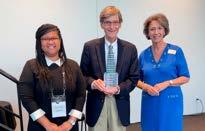
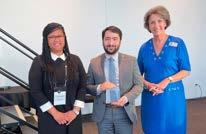
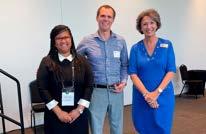
l Alexis O. Gonzalez-Lopez, 2016
This award is designed for individuals who graduated within the past 10 years and have distinguished themselves professionally in the community, or in some other fashion.

l Rebecca J. Westerfield, 1976
This award is given to the individual who has distinguished himself or herself through a contribution of outstanding service to the legal profession.
l Bruce K. Davis, 1971
This award may be bestowed upon an individual who graduated 50 or more years ago and has demonstrated exceptional leadership in his or her profession and/or community and has made a positive impact on the wellbeing of the UK J. David Rosenberg College of Law, the Commonwealth of Kentucky or elsewhere in the nation.
The UK J. David Rosenberg College of Law Alumni Association Hall of Fame was established to acknowledge graduates and former faculty of the college whose extraordinary professional success and contributions, profound positive influence on the UK Rosenberg College of Law, and high degree of character and integrity are recognized by their peers. Inclusion in the Hall of Fame is the highest honor bestowed by the UK Rosenberg College of Law.

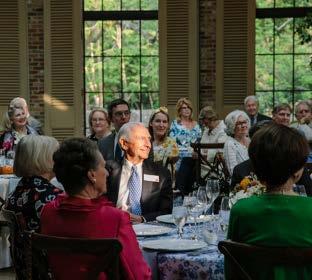
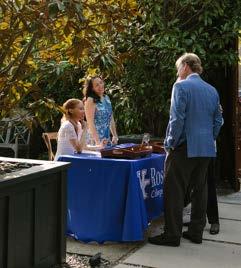



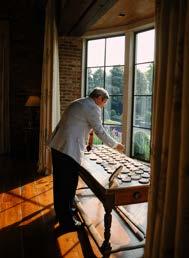
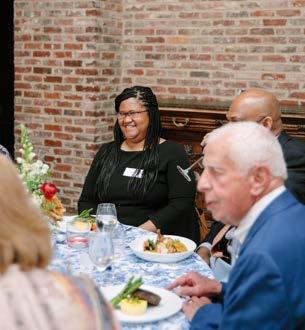

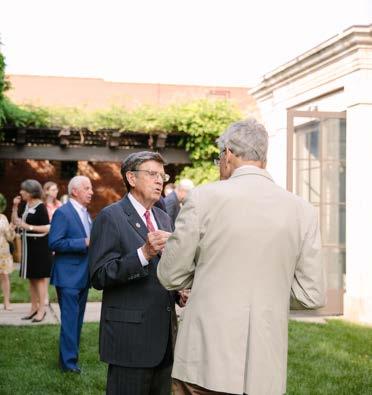


On Thursday, May 12, 2022, the University of Kentucky J. David Rosenberg College of Law held an Alumni Hall of Fame celebration, recognizing all alumni in the college’s Hall of Fame. Alumni, administrators, faculty and guests gathered at Apiary, an event space near downtown Lexington, for a cocktail hour and dinner. The Law Alumni Association Hall of Fame was established to acknowledge graduates and former faculty whose extraordinary professional success and contributions, profound positive influence on the college, and high degree of character and integrity are recognized by their peers. Inclusion in the Hall of Fame is the highest honor bestowed by the UK Rosenberg College of Law. The reunion was the first gathering of Hall of Fame inductees since the program’s inception.
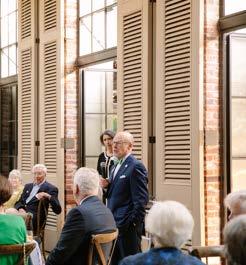

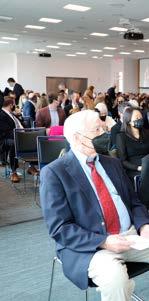
Mr. John K. Leopard, 1953
Mr. Conley G. Wilkerson, 1955
Mr. W. S. Williams, 1955
Mr. Sidney C. Kinkead, Jr., 1964
Mr. Jack K. Giles, 1965
Mr. William R. Hamlin, 1966
Mr. Paul N. Kiel, 1967
Mr. James G. Stephenson, 1967
Mr. Stokes A. Baird IV, 1968
Mr. David G. Mason, 1968
Mr. John P. Reisz, 1969
Charles W. Arnold, 1970
Mr. Michael A. Hurter, 1970
Mr. R. David Clark, 1972
Mr. S. Joseph Dawahare, 1973
Mr. Sumner P. Terry, 1973
Mr. Guy R. Colson, 1974
Mr. Michael E. Queenan, 1975
Mr. John W. Stewart, 1976
Mrs. June N. King, 1979
Mr. Ronald L. Green, 1980
Mr. William E. Spicer, 1980
Mr. Dwight H. Hitch, 1981
Ms. Marsha M. McCartney, 1981
Mr. David C. Trimble, 1982
Mr. Carl B. Boyd, Jr., 1984
Dr. Susan S. Durant, 1986
Prof. Christopher W. Frost, 1986
Mr. Raymond W. Hines, 1988
Ms. Terri L. Neufeld, 1995
On Feb. 26, 2022, family, friends, and students of Professor Christopher W. Frost gathered to celebrate the life of the beloved educator and colleague who died on Jan. 13. The service was held on the third floor of the law building and included remarks from Frost’s sister Valarie Sheppard; his former classmate Ben Chandler; his colleague and mentor Professor Robert Lawson and others.

Jennifer Bird-Pollan, associate dean of academic affairs and a tax law professor, and Christopher Bradley, a bankruptcy professor for the college, wrote the following tribute to Professor Frost.
Institutions come to be defined by the individuals who represent them at their very best. Our friend and colleague Christopher Wayne Frost was a defining part of the University of Kentucky Rosenberg College of Law. As a graduate of the school (first in his class) and as a member of the faculty for the past twenty-four years, Professor Frost was one of the legends of the law school – part of the soul of the place.
A few remarkably talented teachers can strike fear in the hearts of their students, demanding the very best and accepting nothing less, while remaining beloved. Chris’ reputation preceded him, and students trembled in anticipation of being “Frosted” –called on to explain a case or a concept in class. But his high expectations generated a loyal following of students who’d enroll in whatever class he offered, and many UK law graduates credit Chris’ teaching with their career trajectories and their ultimate success. Alums of the law school knew they could always rely on him, and former students regularly connected to share their successes and their failures and to seek the advice of their beloved mentor.
Chris was an expert in bankruptcy and commercial law, and built a national reputation for his research. He wrote dozens of contributions to the widely read “Bankruptcy Law Letter,” and a pile of other influential articles and books. As recognition of his research achievements, he was inducted into the prestigious American College of Bankruptcy.

For us, as his junior colleagues, it was his mentorship that we came to depend on. In conversation, he was kind but honest, brilliant but unpretentious, and met you where you were. He was an informed, engaged, and generous mentor, whether you needed advice on your kids, your students, your research, or your carburetor (fast cars were one of his hobbies). With his encouragement, one of us took on a leadership position at the law school; the other dedicated a book on bankruptcy law to him. Our accomplishments are his accomplishments.
While Chris was not born and raised in Lexington, he moved here at 18, stayed through college and law school, and, as soon as he left, started figuring out how to get back. After practicing law at a prestigious Chicago firm and starting his academic career at Saint Louis University, Chris came home to Lexington to join the UK law faculty in 1998. His commitment to the city he loved was evident in so many ways, including his service as the lead of the transition teams of both Mayor Jim Gray and Mayor Linda Gorton, his run for state house in 2006, and most recently, his service as the chair of the Board of the Lexington Historic Courthouse. Chris cared deeply about the city of Lexington and the Commonwealth of Kentucky, and his influence will be felt for decades to come.
Christopher Wayne Frost died on the morning of January 13, 2022, surrounded by the family he adored. He left a hole in our hearts and in our community. We expect to spend the rest of our careers living up to his example.
Mr. and Mrs. Rodney J. Bartlett
Mr. Mel Camenisch
Mr. and Mrs. Joe B. Campbell*
Dr. Jessica J. Moss and Mr. Shawn D. Chapman
Ms. Janis E. Clark+
Ms. Susan S. Clary
Ms. Anna M. Coutts
Mr. and Mrs. Andrew D. Dorisio
Mr. Lloyd R. Edens and Mrs. Janet E. Edens
The Honorable Brian C. Edwards and Mrs. Angela L. Edwards+
EY Foundation
Mr. Richard L. Frymire, Jr. Mr. C. Patrick Fulton
Mr. and Mrs. James W. Gearheart
Mr. and Ms. Joseph Haas
Mr. and Mrs. David E. Hilliard
Ms. M. Gabrielle Hils
Ms. M. Holliday Hopkins
Mr. and Mrs. James E. Howard
Mr. Gregory K. Jenkins Mr. and Ms. Shawn R. Johnson
Mr. Louis A. Kawaja
Professor Robert G. Lawson*
Mr. and Mrs. Marty LeBus Mr. Timothy K. Lowe
Judge Cole Adams Maier and Mr. Mark B. Maier
The Honorable Susan W. McClure
Mr. and Ms. Tim McKenna
Mr. Charles D. Moore, Jr. Mr. Robert N. Mumaw
Mr. Donnie R. Murray
Mr. Larry A. Neuman
Mrs. Elizabeth A. NoyesPalmer
Ms. Mary J. Oberst
Mr. and Mrs. Ken Patel
Mr. and Mrs. Peter Perlman*
Mr. and Mrs. John Rosenberg
Mr. Phillip G. Royalty
Mr. and Mrs. Curtis W. Scott Mr. Daniel E. Shanahan
Mr. and Mrs. Robert Shay
Mr. James Benjamin Shepard, Esq.
Mr. John Brooken Smith
Mr. and Mrs. John W. Smith
Mr. John M. Spires
Professor Beau B. Steenken
Mr. Roy W. Stephens
Ms. Jillian Martha Suwanski
Mr. and Mrs. James E. Tardio
Ms. Kathleen E. Voelker
Mrs. Pamela L. Weeks
Mrs. Renee Williams Ms. Anne MacGregor Wurtzebach
Dr. Jason Lee Yewell and Mrs. Mary Kaye Yewell
Ms. Rachele Taylor Yohe
$100–$249
Mrs. Lee O. Archambeault
Ms. Dana Arnold
Mr. Kenneth S. Baker, Sr.
Mr. and Mrs. James W. Barnett
Mr. and Mrs. Bennett E. Bayer Mr. Gordon E. Bevens
Mr. Thomas C. Bondurant
Professor David A. Brennen and Mrs. Kimberly Turner Brennen
Mr. Mark W. Browning
Mr. and Mrs. William T. Cain Mr. and Mrs. Thomas L. Canary, Jr.
Mr. and Mrs. Thomas Condon Mrs. Melanie J. Kilpatrick Mr. Jack R. Cunningham Ms. Karen S. Davidson and Mr. John R. Haynes
Mr. S. Joseph Dawahare
Mr. William S. Dean
Ms. Elizabeth Deener
Mr. Merritt S. Deitz, Jr. Mr. and Mrs. Mark A. DelCotto
Mr. Andrew D. DeSimone and Mrs. Kimberly DeSimone
Mr. and Mrs. Carl D. Devine
Mr. Judson F. Devlin
Ms. Blake Donithan Mr. Patrick T. Eavenson
Mr. Brian Robert Epling
Mr. Mark D. Esterle
Mr. Frank J. Faraci
Ms. Elizabeth B. Feldpausch
Fletcher Law Firm
Mr. Douglas C. Franck
Ms. Sandra D. Freeburger
Mr. Woodford L. Gardner, Jr.
Mr. and Mrs. Roger A. Gibbs
Ms. Janet M. Graham
Mr. and Mrs. Trey Grayson
Professor Melissa N. Henke Ms. Whitley Herndon Mr. John H. Holmes, Jr. Judge Hanly A. Ingram Mr. Lindsey Wood Ingram III Mr. and Mrs. Robert S. Jackson IV Mr. and Mrs. Franklin K. Jelsma
Ms. Shadette Page Johnson Mr. and Mrs. Harlan E. Judd, Jr.
Mr. Frederick D. Karp Mr. Mark F. Kightlinger
The Honorable Jean C. Logue Mr. and Mrs. Don Lollar Mr. Gregory J. Lunn The Honorable Arnold B. Lynch
Mr. David H. MacKnight Drs. Karen and Robert Mahaney McBrayer, PLLC Mr. Neil E. Mellen Mr. and Mrs. Andrew Millar Mr. and Mrs. Gregory L. Monge*
Judge Melissa M. Murphy and Mr. Daniel P. Murphy, Jr. Mr. and Ms. Micheal D. Namian Dr. Carolyn and The Honorable Christopher Nickell Mr. Christopher Barrett Osborne
Mr. Keaton Harrison Osborne The Honorable Rebecca M. Overstreet Mr. Walter Pitio Mr. Leslie E. Renkey Ms. Rachel Lauren Rippe Mr. John C. Rogers Mr. Michael W. Ruehling Ms. Katherine Gail Russell+ Mr. and Mrs. Charles Edel Sandler
Mr. David Terrell Sherman and Mrs. Mildred R. Sherman Mr. W. Dean Short Ms. Elizabeth W. Sigler Mr. and Mrs. T. Bruce Simpson, Jr. Mr. W. Kennedy Simpson Mrs. Marian Moore Sims* Ms. Carla B. Skaggs
Ms. Amelia A. Armstrong and Dr. Walker E. Sloan
Mr. and Mrs. George D. Smith Mr. J. David Smith, Jr. Ms. Jazmin P. Smith
Mr. Tony Smith
Mrs. Susan Chun and Mr. H. Peter Spielmann
Ms. Catherine C. Staib
Mr. and Mrs. Gene A. Stewart Mr. Roger Stewart
The Honorable and Mrs. David T. Stosberg Mrs. Mindy Sunderland Mr. Thomas R. Thomas, Sr. Judge Lindsay Hughes Thurston
Mrs. Laura Tipton
Mr. Johnnie L. Turner, Jr. Mr. Palmer G. Vance II Mr. and Mrs. Joseph Vandiver Mr. and Mrs. Kevin W. Weaver+ Mr. and Mrs. Timothy C. Wills Mr. and Mrs. David T. Wilson II
Judge and Mrs. Clarence A. Woodall III Ms. Brooke Worden Under $100 Ms. Salena Antis Mr. and Mrs. Michael E. Baker*
Ms. Bethany N. Baxter Aryn Behnke
Bellefonte Country Club Mr. Bruce E. Blackburn Mr. J. Peter Cassidy III Esq. Ms. Gentry Carnelus Collins Ms. Elizabeth A. Combs Mr. and Mrs. David Dean Mr. and Mrs. Sidney B. Douglass II
Mrs. Kathryn Dutton-Mitchell Mr. and Ms. Brandon L. Eason
Ms. Amber Stetler Fiess
Ms. Sydney T. Freeman Ms. Lisa Gabbard
Mr. Brian C. Gardner
Ms. Ronita S. Giberson and Dr. Jonathan M. Golding Mr. Michael A. Goforth Mr. and Mrs. John D. Hale Mr. Thomas L. Hall
Benjamin Harris-Medina Mr. Gregg G. Heckley Ms. Shawntaye Hopkins
Mr. and Mrs. Rick Humbarger Ms. Cathy P. Jarvis
Mr. Jerrell A. Johnson Mr. and Mrs. Phillip R. Johnson
Mr. Jeffrey Kaplan
Mr. and Mrs. Jim Keenan Ms. Linda Kendall Mr. and Mrs. Douglas M. Lamb
Mr. Dale K. Marvin Zachary Daniel McMillan and Marra McMillan
Mr. and Mrs. Stephen D. Milner
Mr. and Mrs. Kirk B. Moberley, Jr.
Mr. and Mrs. Gerald Netzky
Mr. Edgar C. Newlin, Jr. Andrew and Heather Palmer Ms. Emily Perkes
Mr. and Mrs. Jeffrey K. Phillips
Mr. Charles Pierce
Ms. Angelica A. Prekopa
Mr. and Mrs. Joe Prekopa
Mr. Andre R. Rickman
Mr. and Mrs. Sean Patrick Rukavina
Mr. Christopher J. Ryan, Jr. and Mrs. Virginia Deaton Ryan
Mr. and Mrs. Greg Schaaf
Mr. and Ms. Mike Scheser
Mr. and Mrs. Matthew P. Silver
Mr. Logan A. Smart Ms. Corey Lynn Southworth
Ms. Amber Stetler-Feiss
Ms. Laquita Stokes, Esq.
Mr. and Mrs. Jerry D. Truitt Mr. Michael O. Walker
Mr. and Mrs. Palmer James Ward
Ms. Virginia A. Ware
Ms. Whitney Jonez Waters
Mr. Frank A. Wells, Jr. and Judge Janie McKenzie-Wells Ms. Tracey N. Wise
* Indicates Lafferty Society Member
+ Indicates Visiting Committee Member 2021–2022
The Black Law Students Association and Latino Law Student Association held their second annual spring banquet on April 1, 2022, at the Lyric Theater & Cultural Arts Center in downtown Lexington. The theme was “Legacy: We Stand on the Shoulders of Giants.” Kentucky State Rep. Attica Scott and Activist Hannah Drake were keynote speakers.
On Thursday, May 5, UK Rosenberg College of Law held a reception for Class of 2022 graduates and their families on the Memorial Hall lawn across from the law building. The event, held the day before commencement, included remarks from Dean Mary J. Davis and Jennifer Bird-Pollan, associate dean of academic affairs. The class selected Seth Stevens to speak on behalf of the graduates. We would like to thank the Law Alumni Association for providing a balloon arch for photos and the class composite photo.
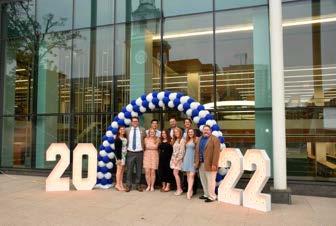
The Women’s Law Caucus
student organization held a Spring Reception Brunch on March 26, 2022, honoring Judge Susan Wesley McClure, a 1988 graduate of the law school; Associate Dean Jennifer Bird-Pollan; and law student Shantale Davis, the recipient of the Rebecca Westerfield Award for Excellence in Leadership.
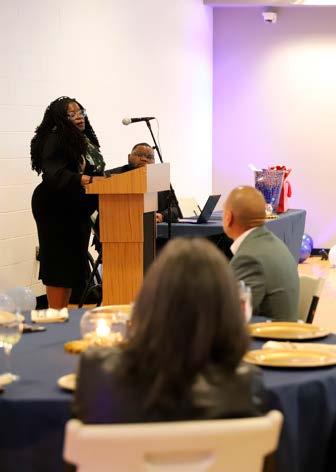
UK Rosenberg Law hosted its second daylong Breonna Taylor Symposium on Oct. 16, 2021, in the G. Chad Perry III Grand Courtroom in the law building. Law professors, criminal justice scholars, judges, attorneys, journalists and activists discussed the validity of the search warrant in the Breonna Taylor case. Law students Sarah Byres and Bennett Tuleja organized the event with Blanche Bong Cook, the Robert E. Harding Jr. Associate Professor of Law.
The first four J. David Rosenberg College of Law Scholars were competitively selected after an interview process and thorough review of about 35 applicants. The scholarships were made possible because of the Rosenberg Law Endowment, created by alumnus J. David Rosenberg and his wife, Dianne. The awards are full-tuition scholarships that were renewable for three years of law school. The inaugural recipients are law students Jordan “Caroline” King, Isabel Harrison, Abby Napier, and Emily Puckett.
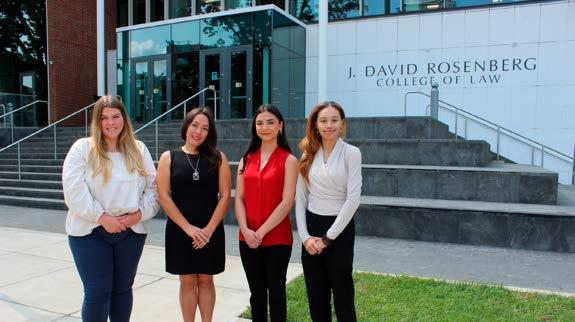
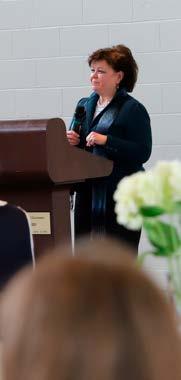
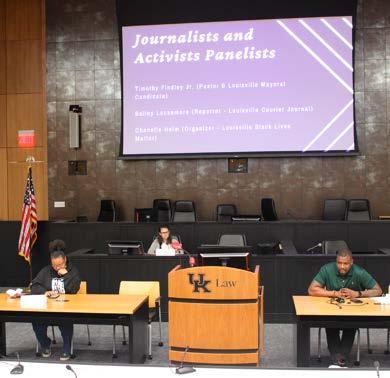
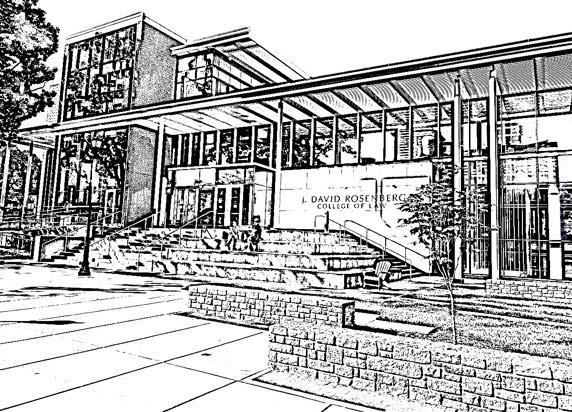
 UK J. David Rosenberg College of Law 620 South Limestone Lexington, Kentucky 40506-0048
UK J. David Rosenberg College of Law 620 South Limestone Lexington, Kentucky 40506-0048